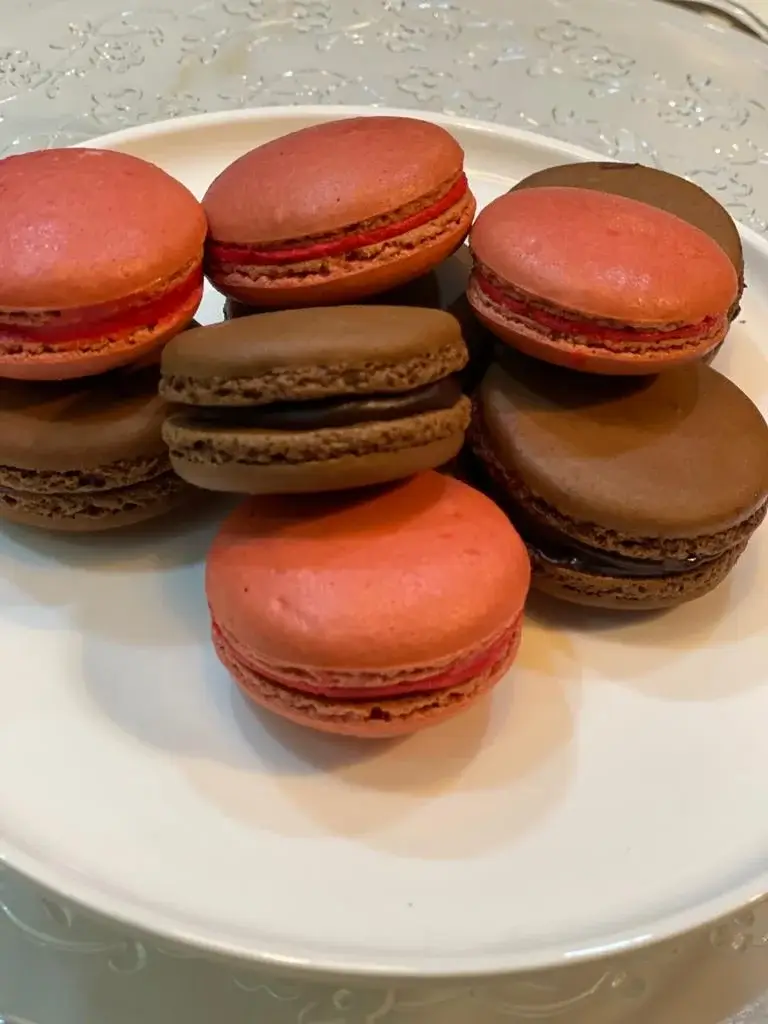
The focus is on providing you with foundational knowledge and practical skills.
While a short course may not delve as deeply into advanced topics as a longer program, it serves as an excellent introduction, providing you with a solid foundation to decide if you want to pursue more extensive training in culinary science and pastry art. Keep in mind that hands-on practice and a curiosity to learn beyond the course will further enhance your skills over time.
Duration: 1 month
Monday 10am – 2pm
Wednesday 10am – 2pm
Thursday 10am – 2pm – (first 2 Thursdays)
Second two Thursday’s – 10am – 2pm
Course fee: N300k
Registration fee: N20k
Includes starter kit and all necessary food ingredients for the duration of the course.
1. Basic Culinary Techniques:
- Learn fundamental cooking and baking techniques essential for both savory and pastry creations.
2. Patisserie Basics:
- Acquire foundational skills in basic baking, cake decoration, and simple pastry artistry.
- Students will engage in hands-on practical covering pie, cake, cookie, bread, and dessert making.
3. Introduction to Culinary Science:
- Gain a basic understanding of culinary science principles, including the chemistry of cooking.
4. Flavor Awareness:
- Develop an awareness of flavor combinations and how to create balanced tastes.
5. Hands-on Experience:
- Engage in practical, hands-on activities to reinforce theoretical concepts and build skills.
- Students will undertake practical sessions exploring various cuisines, including African, Chinese, Indian, Italian, and French, fostering an appreciation for culinary diversity and a comprehension of different culinary techniques.
6. Introduction to Menu Planning:
- Learn the basics of designing simple, appealing menus.
7. Kitchen Safety and Sanitation:
- Understand essential practices for maintaining a safe and hygienic kitchen environment.
8. Ingredient Knowledge:
- Familiarize yourself with a variety of ingredients commonly used in both culinary and pastry arts.
9. Time Management:
- Develop basic time management skills crucial in a kitchen setting.
10. Creative Expression:
- Students will dive into practical, hands-on sessions crafting simple yet elegant canapés and hors d’oeuvres, alongside learning the art of cocktail making.
11. Awareness of Industry Trends:
- Gain insights into current trends in culinary arts and pastry, giving you a glimpse of the broader industry landscape.
Culinary Science and Pastry Art course

Culinary Science and Pastry Art course
The focus is on providing you with foundational knowledge and practical skills.
While a short course may not delve as deeply into advanced topics as a longer program, it serves as an excellent introduction, providing you with a solid foundation to decide if you want to pursue more extensive training in culinary science and pastry art. Keep in mind that hands-on practice and a curiosity to learn beyond the course will further enhance your skills over time.
Duration: 1 month
Monday 10am – 2pm
Wednesday 10am – 2pm
Thursday 10am – 2pm – (first 2 Thursdays)
Second two Thursday’s – 10am – 2pm
Course fee: N300k
Registration fee: N20k
Includes starter kit and all necessary food ingredients for the duration of the course.
1. Basic Culinary Techniques:
- Learn fundamental cooking and baking techniques essential for both savory and pastry creations.
2. Patisserie Basics:
- Acquire foundational skills in basic baking, cake decoration, and simple pastry artistry.
- Students will engage in hands-on practical covering pie, cake, cookie, bread, and dessert making.
3. Introduction to Culinary Science:
- Gain a basic understanding of culinary science principles, including the chemistry of cooking.
4. Flavor Awareness:
- Develop an awareness of flavor combinations and how to create balanced tastes.
5. Hands-on Experience:
- Engage in practical, hands-on activities to reinforce theoretical concepts and build skills.
- Students will undertake practical sessions exploring various cuisines, including African, Chinese, Indian, Italian, and French, fostering an appreciation for culinary diversity and a comprehension of different culinary techniques.
6. Introduction to Menu Planning:
- Learn the basics of designing simple, appealing menus.
7. Kitchen Safety and Sanitation:
- Understand essential practices for maintaining a safe and hygienic kitchen environment.
8. Ingredient Knowledge:
- Familiarize yourself with a variety of ingredients commonly used in both culinary and pastry arts.
9. Time Management:
- Develop basic time management skills crucial in a kitchen setting.
10. Creative Expression:
- Students will dive into practical, hands-on sessions crafting simple yet elegant canapés and hors d’oeuvres, alongside learning the art of cocktail making.
11. Awareness of Industry Trends:
- Gain insights into current trends in culinary arts and pastry, giving you a glimpse of the broader industry landscape.